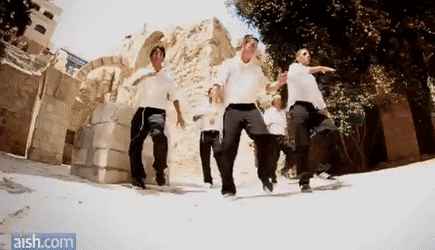Rosh Hashanah is the Jewish new year, the beginning of the month of Tishrei. On this holiday God reviews the behavior of all His subjects and decrees their fate for the coming year. We blow the Shofar on Rosh Hashanah, declaring that God is our King and we are His devoted subjects. Rosh Hashanah is a time of judgment, tempered with the great love God has for His people.
Written content from Rabbi Shraga Simmons
When is Rosh Hashanah 2021?
Rosh Hashanah 2021 begins on Monday, September 6 at sunset and ends in the evening of Wednesday, September 8.
Pre-Rosh Hashanah
A key component of Rosh Hashanah preparation is to ask for forgiveness from anyone we may have wronged during the previous year. To the greatest extent possible, we want to begin the year with a clean slate – and without anyone harboring a grudge against us. Similarly, we should be quick to forgive those who have wronged us.
Many people have the custom of going to the mikveh before Rosh Hashanah after midday. A mikveh, which has the power to purify from certain types of spiritual impurities, can be an important part of the teshuva process.
Some have the custom of visiting a cemetery on the day before Rosh Hashanah and praying at the graves of the righteous. Of course, we do not pray “to” the righteous, but only to God who hears our prayers in the merit of the righteous.
The morning before Rosh Hashanah, we perform “Hatarat Nedarim” – annulling of vows. In Torah terms, saying something as simple as “I refuse to eat candy” can be considered a legal vow. Therefore, before Rosh Hashanah, we annul any vows, whether made intentionally or not. This is done by standing in front of three adult males and asking to be released from one’s vows. The full text can be found in a Siddur or Rosh Hashanah Machzor.
The Festive Meal of Rosh Hashanah
During the High Holidays, a round challah is used – symbolizing fullness and completion. After making the “Hamotzi” blessing, it is customary to dip the bread into honey – symbolizing our prayer for a sweet new year.
Then, after the bread has been eaten, take an apple and dip it in honey. Make a blessing on the apple (since “Hamotzi” did not cover the apple) and eat a little bit of the apple. Then say, “May it be Your will, God, to renew us for a good and sweet new year.”
Why do we ask for both a “good” AND “sweet” year? Doesn’t the word “good” automatically include “sweet?” Judaism teaches that everything happens for the good. It is all part of the Divine will. Even things that may look “bad” in our eyes, are actually “good.” So we ask that in addition to good, the year should be a “revealed” good – i.e. one that tastes “sweet” to us.
On Rosh Hashanah, we add the paragraph “Ya’aleh V’yavo” in Grace After Meals.
Symbolic Foods for Rosh Hashanah
On Rosh Hashanah, we eat foods that symbolize good things we hope for in the coming year. We contemplate what these foods symbolize, and connect with the Source of all good things. Here is a list from the Talmud of symbolic foods customarily eaten on Rosh Hashanah. (The food and its related meaning are written in capital letters.)
- After eating LEEK or CABBAGE, say: “May it be Your will, God, that our enemies be CUT OFF.”
- After eating BEETS, say: “May it be Your will, God, that our adversaries be REMOVED.”
- After eating DATES, say: “May it be Your will, God, that our enemies be FINISHED.”
- After eating GOURD, say: “May it be Your will, God, that the decree of our sentence should be TORN apart, and may our merits be PROCLAIMED before You.”
- After eating POMEGRANATE, say: “May it be Your will, God, that our merits increase as the seeds of a POMEGRANATE.”
- After eating the HEAD of a sheep or fish, say: “May it be Your will, God, that we be as the HEAD and not as the tail.
You can also use other foods and make up your own “May it be Your will…” For example, eat a raisin and celery, and ask God in the coming year for a “raise in salary” (raisin celery)! Read more from Aish





